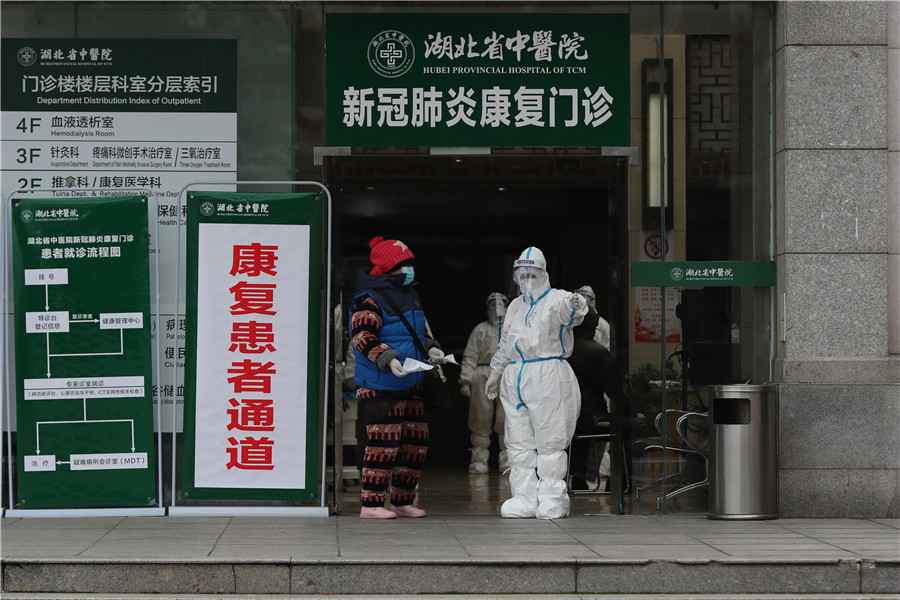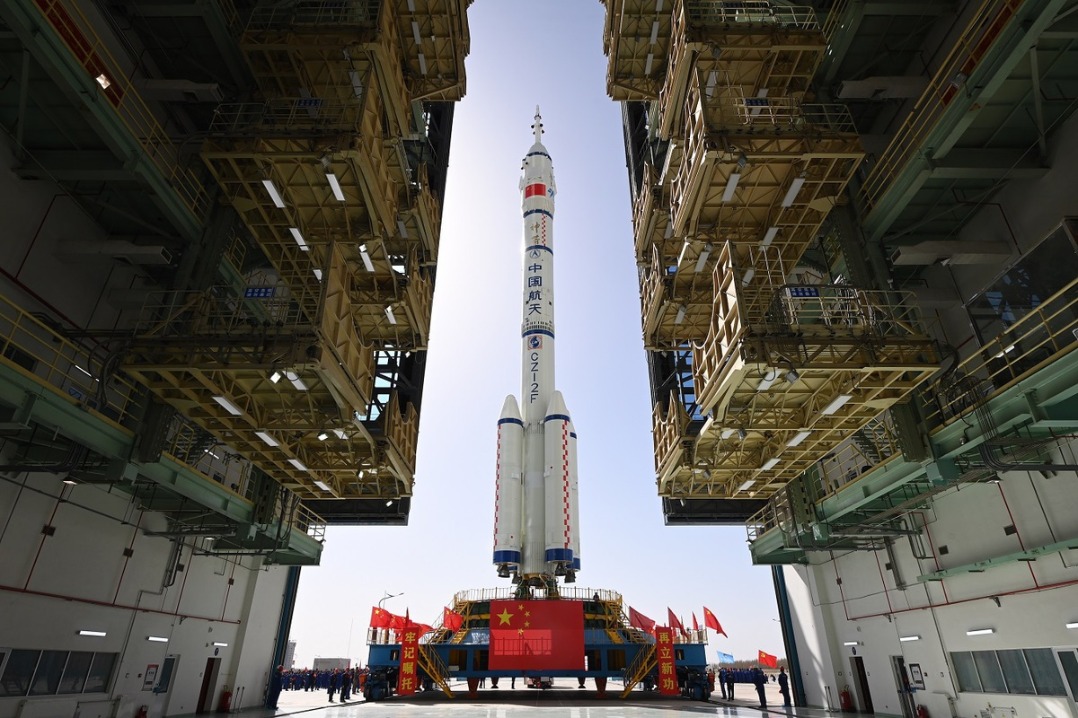More resilience needed to withstand shocks
By Xin Zhiming | China Daily | Updated: 2020-03-13 07:05

It's still too early to claim that the turbulence in global financial markets this week will lead to a major meltdown, but the sell-offs do point to the increasing external risks facing the Chinese economy.
The Dow Jones Industrial Average slumped 5.86 percent to close at 23553.22 on Wednesday, falling altogether by more than 20 percent from its peak on Feb 12. The S&P 500 and the Nasdaq both plunged by around 5 percent on Wednesday.
In contrast, the domestic A-share market has remained relatively sound. Although the benchmark Shanghai Composite Index fell by 3.01 percent on Monday, it gained 1.82 percent on Tuesday, and fell 1.52 percent to close at 2923.49 points on Thursday.
If global financial markets continue to sour, it will definitely affect major economies and in turn spill over to put pressure on the Chinese economy, which has already slowed in the first quarter due to the novel coronavirus epidemic.
While policymakers and economists alike are trying to come up with measures to bolster growth this year, over the longer term, it is a must for the country to systemically build up its economic resilience against periodic shocks.
Since late January, the country has locked down Wuhan, capital of Hubei province, and reduced economic activity and travel to contain transmission of the virus. As a result, growth may slow to 5 percent or even lower in the first quarter, economists have estimated.
The manufacturing Purchasing Managers' Index, which reflects activity expectations, slumped to 35.7 in February, down from 50 in January. As statistics show, the country's novel coronavirus-combating initiative is making solid headway and the number of confirmed patients infected with the virus has been declining steadily. The manufacturing PMI reading in March may improve, but it will take some time for operations to return to pre-epidemic levels.
The serious economic damage brought by the virus, trade restrictions from other countries and the threat of a global financial crisis should remind policymakers of the need to improve the resiliency of the economy against unexpected shocks to prepare for rainy days in the years to come.
Over the past two decades, the Chinese economy has expanded at a relatively brisk pace. But at the same time, it has frequently been forced to cope with shocks triggered by unexpected contingencies, such as the 1997-98 Asian financial crisis, the 2003 severe acute respiratory syndrome epidemic, the 2008 earthquake in Sichuan province, the global financial crisis in 2008 and 2009, trade disputes with other nations and the current novel coronavirus epidemic.
Those shocks have all caused sharp short-term economic slowdowns, posing a severe challenge to the country's job market, corporate sector and financial system. If they had not been properly tackled, China's economic, financial and even social stability would have been put at risk.
Similar shocks may continue to occur in the coming decades. This is not panic-mongering, but a real possibility, considering the generally high debt level in many major economies that may trigger financial crises, rising global temperatures that may activate natural disasters and potentially lead to more frequent epidemics and intensified geopolitical disputes in some parts of the world that may ultimately evolve into conflicts and even wars in worst case scenarios.
China has shown strong resilience in the current battle against the novel coronavirus. After the initial hesitation and chaos after the virus was found to be spreading rapidly in Wuhan, authorities quickly took targeted and decisive measures-such as the lockdown of Wuhan, reduction of human movement and mobilization of medical staff from all over the country, including traditional Chinese medicine practitioners-to improve the efficacy of the fight against the virus.
So far, the number of confirmed cases has sharply declined across China and the country is now able to send medical teams and materials to help other countries control the epidemic.
One of the important lessons for China this time is that its public hospitals have played a decisive role in containing the spread of the outbreak. China's private hospitals account for 63 percent of the country's total, according to the National Health Commission. But most of them are technically unable to handle such a big challenge as the current epidemic. And others, although technically capable, have declined to participate.
Public hospitals have served as the backbone in the battle against the outbreak, with thousands of brave doctors and nurses from public hospitals answering the call of the central authorities to rush to Wuhan and other parts of Hubei to help contain the spread of the epidemic. Without their participation, the situation would not have improved so fast.
As the country reforms its public hospital system, many public hospitals-especially at the grassroots level-have been sold to private investors. But the country must further improve the operation of key public hospitals, increase fiscal inputs and devise appropriate policies to help them improve their efficiency and prevent brain drain, because they cannot merely satisfy daily public demand for high-quality health services, but must also play an indispensable role in combating the spread of epidemics.
Similarly, enterprises in the public sector at large should be reassessed as they can also play a major role in times of crisis, such as epidemic and disaster relief.
During the global financial crisis of 2008 and 2009, for instance, China's State-owned enterprises made important contributions to the country's efforts to stabilize economic growth, the job market and commodity prices.
While the operational efficiency of State enterprises should be improved, their strength should not be weakened in the country's economic restructuring.
The top leadership agreed at the 19th National Congress of the Communist Party of China in 2017 that "there must be no irresolution about working to consolidate and develop the public sector", although the nonpublic sector should also be supported and the market should play the decisive role in resource allocation.
Some economists championing laissez faire doctrines who have quite a big influence in China have argued for using market-oriented reforms to replace State-owned enterprises with private ones, citing the formers' low efficiency and high utilization of economic resources.
Policymakers should not be misled by such one-sided arguments and should instead steadily push forward SOE reforms to improve their operational efficiency while maintaining their indispensible role in offsetting unexpected shocks to the national economy.
The role of the market should certainly be respected. The nation has made it a policy orientation to ensure the market plays a decisive role in resource allocation. But that does not mean all public sector players should be driven out of the market and replaced with private ones.























